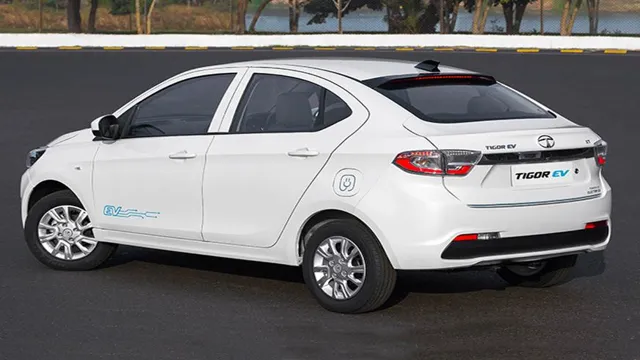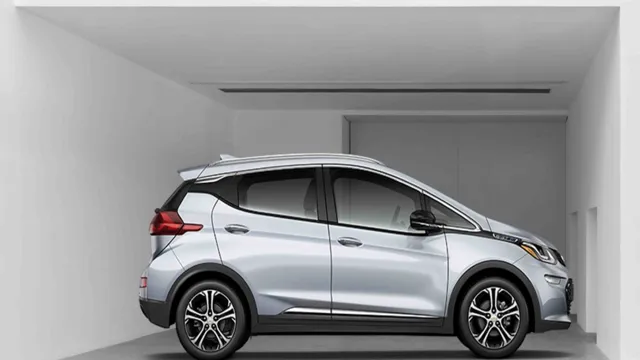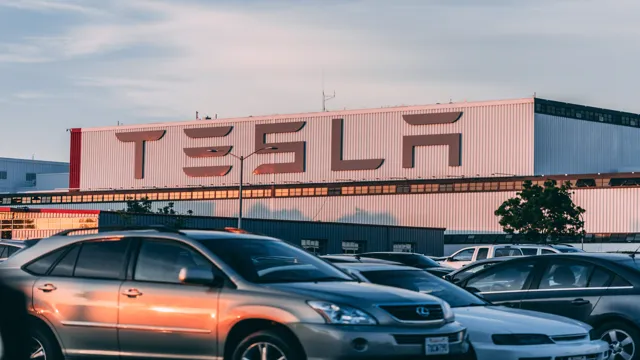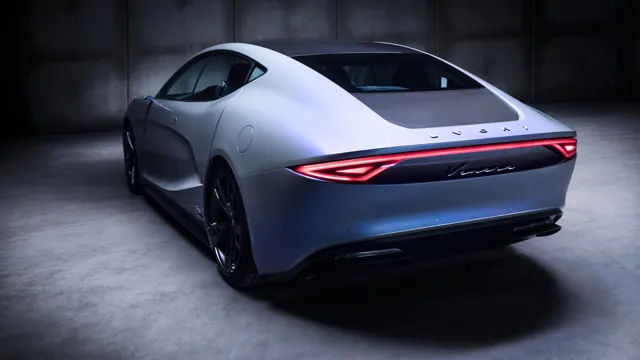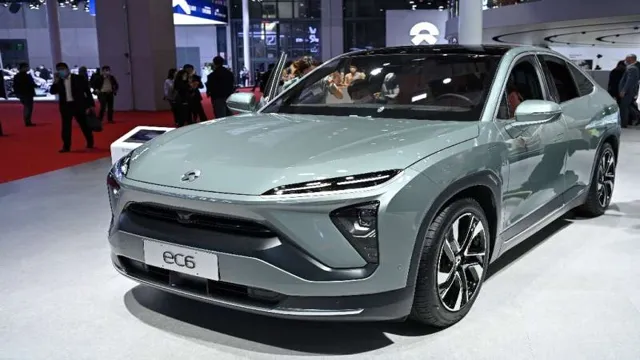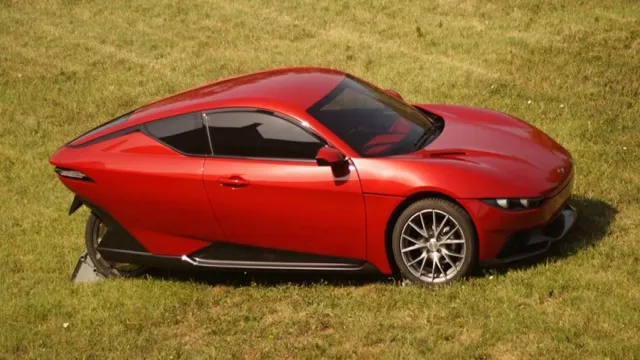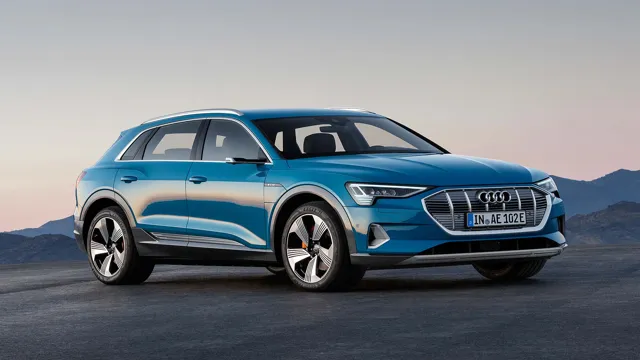Zipping into the Future: Latest News on Electric Cars in India
Electric Cars in India: Latest News In recent years, the buzz around electric cars in India has been growing louder and louder. With the Indian government pushing for cleaner and greener modes of transportation, the demand for electric cars has skyrocketed. But what exactly is the latest news in this area? Well, the good news is that there have been several recent developments that are paving the way for a greener future in India.
For starters, Tata Motors recently announced that it will be launching a new electric car in the market soon. This new model, called the Altroz EV, is expected to give tough competition to popular electric cars like the Hyundai Kona and the MG ZS EV. Another big development in the electric car industry in India is the government’s plan to install charging stations across the country.
The government has said that it will be setting up around 69,000 charging stations across major cities and highways in the next few years. This move will encourage more people to switch to electric cars, as they will have easier access to charging facilities. But there are also some challenges that the electric car industry in India is facing.
One of the biggest challenges is the high cost of electric cars. While the prices of electric cars have been dropping, they are still significantly more expensive than traditional petrol and diesel cars. This can make it difficult for average consumers to afford them.
However, despite these challenges, the future of electric cars in India looks bright. With more and more people becoming aware of the environmental benefits of electric cars, and with the government pushing for cleaner modes of transportation, it is only a matter of time before electric cars become more mainstream in India.
Government’s Push for Electric Mobility
The Indian government has been pushing for electric mobility in the country, and recently there has been a surge of electric cars on the Indian roads. The latest news on electric cars in India indicates that the government has provided a considerable boost to the electric vehicle industry by offering incentives and tax benefits to both manufacturers and buyers. In addition, charging infrastructure is also being rapidly developed in the country.
However, the transition to electric vehicles is not without its challenges as the cost of electric vehicles is still higher than conventional vehicles. Nevertheless, the Indian government’s push for electric mobility is a step in the right direction towards meeting the country’s growing energy demands while reducing its carbon footprint. But with the Indian automobile industry heavily reliant on fossil fuels, the transition to electric vehicles may take some time.
Nevertheless, electric cars in India are quickly gaining momentum, and with the right policies, it is only a matter of time before they become the preferred mode of transportation on Indian roads.
Recent policy initiatives promoting electric cars in India
In recent years, the Indian government has been making significant efforts to promote electric cars and reduce the country’s carbon footprint. One of the most notable policy initiatives is the Faster Adoption and Manufacturing of Hybrid and Electric Vehicles (FAME) scheme, which offers incentives and subsidies to electric vehicle buyers and manufacturers. In addition to this, the government is also working on developing charging infrastructure across the country, with a target of setting up at least one charging station within a radius of 3 km in all major cities.
Furthermore, the government has announced significant reductions in taxes on electric vehicles, making them more affordable for consumers. These policy initiatives are a step in the right direction towards achieving sustainable mobility in India and reducing the country’s dependence on fossil fuels. With more and more people opting for electric cars, we can hope to see a cleaner and greener future for our country.
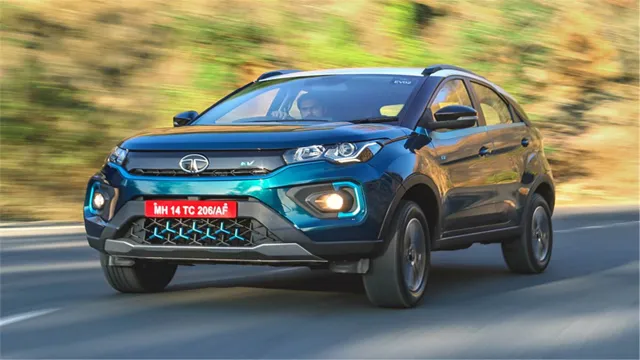
Impact of government incentives on electric car sales
The government’s push for electric mobility has had a significant impact on the sales of electric cars. With incentives such as tax credits, rebates, and grants, customers are now more inclined to purchase electric vehicles. For instance, some governments in certain states offer financial incentives to those who purchase electric cars, such as Arizona and Colorado, which provide tax cuts up to $7,500 and $5,000, respectively.
Besides, in the UK, the government offers a grant of up to £3,000 to those who purchase an electric vehicle. Overall, these incentives have played a crucial role in increasing the adoption of electric vehicles and promoting sustainable transportation. As awareness regarding environmental concerns grows, and public interest continues to shift towards electric vehicles, governments are expected to offer more incentives that encourage individuals to make the switch to electric cars in the coming years.
New Electric Car Launches
If you’re keeping up with the latest news on electric cars in India, you may be interested to hear that a number of new models are set to launch in the coming months. One of the most highly anticipated releases is the Tata Nexon EV, which is set to hit the market in early 202 With a range of over 300 kilometers on a single charge, this vehicle promises to be a game-changer for those looking to make the switch to electric.
Another exciting release is the Mahindra eKUV100, which is expected to debut in early 2021 as well. This compact SUV is designed specifically for city driving, with a range of around 150 kilometers and a top speed of 80 km/h. Other new electric vehicles to watch out for include the MG ZS EV and the Audi e-Tron, both of which have already made their debut in India and have received a warm reception from buyers.
With so many exciting new options available, it’s clear that the future of electric cars in India is looking brighter than ever before.
Overview of recent electric car launches in India
Electric car launches in India have been gaining significant traction in recent times, with numerous automakers unveiling new cars. One of the most exciting electric cars recently launched in India is the Tata Nexon EV. Equipped with a 30.
2 kWh battery that provides up to 312 km of range, the Nexon EV showcases Tata’s commitment to environmentally friendly vehicles. Another electric car that has generated a lot of buzz is the MG ZS EV. With a 4
5 kWh battery pack, this car can go up to 418 km on a single charge. Other notable electric car launches in India include the Mahindra eKUV100 and the Hyundai Kona Electric. As the Indian government pushes for cleaner mobility options, these new electric car launches are a welcome addition to the market.
With increased awareness and affordability as well as government support, electric cars are set to drive the future of mobility.
Features and specs of popular electric car models
Electric Car Launches Electric car enthusiasts have been eagerly waiting for the latest models that will be hitting the market soon. Tesla’s Model S Plaid is set to release this year, with a top speed of 200mph and the capability to go from 0 to 60mph in under 2 seconds! Talk about burstiness! Another new launch to their lineup is the Model Y, an electric SUV that offers a range of almost 300 miles per charge. And let’s not forget about the Ford Mustang Mach-E, which is turning heads with its sleek design and impressive 300 miles of range.
Audi’s e-tron GT and Porsche’s Taycan Cross Turismo are also anticipated to launch this year, with powerful electric engines and gorgeous designs. These upcoming electric car launches are sure to excite any car enthusiast who is looking for an eco-friendly, power-packed vehicle.
Comparison of electric cars with traditional cars
Electric Cars The automotive industry is making a shift towards more sustainable modes of transportation, and electric cars are at the forefront of this revolution. With the advent of new electric car launches, more people are becoming interested in the comparison between electric cars and traditional cars. The obvious benefit of electric cars is their environmental friendliness.
They emit lower levels of harmful gases and particulates, making them a better choice for the planet. Moreover, electric cars are also low maintenance, as they have fewer moving parts and require less frequent servicing. On the other hand, traditional cars rely on fossil fuels, which not only contribute to pollution but are also becoming increasingly expensive.
They require regular maintenance and can be costly to repair. Overall, the benefits of electric cars far outweigh those of traditional cars, making them the better option for a sustainable future.
Charging Infrastructure Development
Electric cars in India have seen a surge in demand in recent years, with more and more people opting for cleaner, greener modes of transport. However, one of the biggest hurdles to widespread adoption of electric vehicles is the lack of adequate charging infrastructure. The good news is that the Indian government has taken note of this issue and has been working towards the development of a robust charging network across the country.
Several initiatives, including the launch of the FAME (Faster Adoption and Manufacturing of Electric Vehicles) scheme, the installation of charging stations at various public places, and even the implementation of a policy that mandates the installation of EV charging units in all new buildings, have been put in place in recent times. These measures are aimed at not just encouraging EV adoption, but also making electric vehicles a viable and convenient option for Indian citizens. With such developments, it’s exciting to consider what the future holds for electric cars in India.
Current status of charging infrastructure in India
The development of charging infrastructure in India is currently on the rise. With the government focusing on increasing the adoption of electric vehicles (EVs) and reducing carbon emissions, several initiatives have been taken to promote the installation of charging stations across the country. The National Electric Mobility Mission Plan (NEMMP) aims at putting 6-7 million EVs on the road by 2020.
Under the Faster Adoption and Manufacturing of (Hybrid &) Electric Vehicles (FAME) scheme, the government provides incentives to the manufacturers of EVs and charging infrastructure. The installation of charging stations in both public and private spaces such as malls, airports, and residential complexes is also being incentivized. Private players in the market are also contributing to the development of charging infrastructure.
Currently, there are over 1,200 charging stations in India, and the number is expected to grow significantly in the coming years. However, more measures need to be taken to ensure that the charging infrastructure in India is reliable, cost-effective, and easily accessible, encouraging more people to switch to EVs.
Plans for expanding charging stations across the country
As electric vehicles become increasingly popular, the need for accessible and convenient charging stations is on the rise. Fortunately, there are some exciting developments happening on the charging infrastructure front. One of the biggest initiatives is the plan for expanding EV charging stations across the country.
In fact, several states have already implemented programs to incentivize the growth of charging infrastructure. For instance, California has launched a rebate program that offers financial incentives to businesses willing to install EV charging stations. Other states are following suit, recognizing the importance of developing a robust charging network to support the transition away from fossil fuels.
With these developments, it won’t be long until EV drivers can travel long distances without worrying about running out of power.
Future of Electric Cars in India
The future of electric cars in India is looking quite promising. With the growing concern for environmental preservation, the government has made several policies and reforms to encourage the adoption of electric vehicles. The latest news in this regard is the announcement of a new incentive policy by the government, which offers subsidies and waivers on electric vehicle purchases.
This is expected to make electric cars more affordable for the masses and increase their demand. Additionally, there has been a surge in the number of charging stations being installed across the country, making it more convenient for electric car owners to charge their vehicles. With the advancement of technology and greater awareness among people, it is believed that the electric cars market in India will only continue to grow in the coming years.
As such, manufacturers are already investing in research and development to produce electric vehicles that are affordable, efficient and sustainable. All in all, the future of electric cars in India is bright, and it is only a matter of time before they become the norm on the roads.
Predictions for electric car market growth in India
The future of electric cars in India looks bright, with the government’s push towards a more sustainable transportation system. India has set an ambitious goal of having only electric vehicles on the road by 2030. While the country has a long way to go to achieve this, the market for electric cars is growing at a rapid pace.
In 2020, electric car sales in India increased by a whopping 85%. This is partly due to the increasing availability of affordable electric cars, as well as the government’s incentive programs that offer subsidies and tax breaks for those who make the switch to electric. Companies like Mahindra Electric, Tata Motors, and MG Motor have already joined the electric car race with their respective models.
Though there are various challenges like lack of charging infrastructure, high upfront costs, technology adoption issues, etc., it is predicted that electric car sales in India will continue to gain momentum in the coming years. With India being one of the largest automobile markets globally, the growth of electric cars could bring a significant reduction in air pollution, greenhouse gas emissions, and dependence on oil imports.
Investment opportunities in the electric car industry
As India takes a step towards cleaner and greener transportation, the future of electric cars looks promising. With the government’s push towards electric mobility, car manufacturers are investing heavily in the country, and the opportunities for investment are vast. The electric car industry is expected to grow exponentially in India, with the potential to reach up to 30% of the total automotive market share in the coming years.
There are several factors contributing to the growth of the electric car industry in India. Firstly, rising environmental concerns are fueling the demand for cleaner transportation options. Secondly, the government’s incentives and subsidies for electric cars make them cost-competitive with traditional gasoline cars.
Furthermore, advancements in technology have led to the development of more efficient batteries and electric powertrains, making electric cars more practical than ever before. Investing in the electric car industry in India could be a wise decision, as there are numerous opportunities available. With the government encouraging domestic manufacturing of electric vehicles, companies investing in manufacturing plants in the country could benefit from financial incentives and tax breaks.
Additionally, investing in the country’s charging infrastructure could prove to be a profitable venture as the number of electric vehicles on the road continues to increase. In conclusion, the future of electric cars in India seems bright, and the opportunities for investment are immense. As environmental concerns and government initiatives drive the growth of the electric car industry, investors can expect to see a significant return on their investments.
By investing in manufacturing, charging infrastructure, and other key areas, investors can help shape the future of transportation in India while also reaping the rewards of their investments.
Conclusion
The latest news on electric cars in India is shockingly positive. With advancements in technology and increasing awareness about the benefits of eco-friendly vehicles, the electric car market is poised for a powerful surge. So let’s charge up our optimism and rev up our ambitions for a greener, cleaner tomorrow!”
FAQs
What is the latest news on the launch of electric cars in India?
Recently, the Indian government has announced plans to provide incentives for electric vehicle manufacturers as part of their aim to achieve rapid electrification of the country’s transport sector. This move is expected to boost the growth of the electric car market and result in more car models being launched in India soon.
How is the Indian government supporting the growth of electric cars in the country?
The Indian government has introduced various measures to support the growth of the electric car market, including providing financial incentives and subsidies for electric vehicle manufacturers, reducing import duties on EV components, and launching a nationwide charging infrastructure project.
What are the top electric car models available in the Indian market currently?
The top electric car models available in the Indian market currently include the Tata Nexon EV, Mahindra eVerito, MG ZS EV, Hyundai Kona EV, and the recently launched Audi e-tron.
Are electric cars an affordable and viable option for Indian consumers?
While electric cars in India are still relatively expensive compared to traditional petrol and diesel cars, the government’s incentives and subsidies are making EVs more affordable for consumers. Additionally, the lower running and maintenance costs of electric cars make them a more viable option in the long run.

